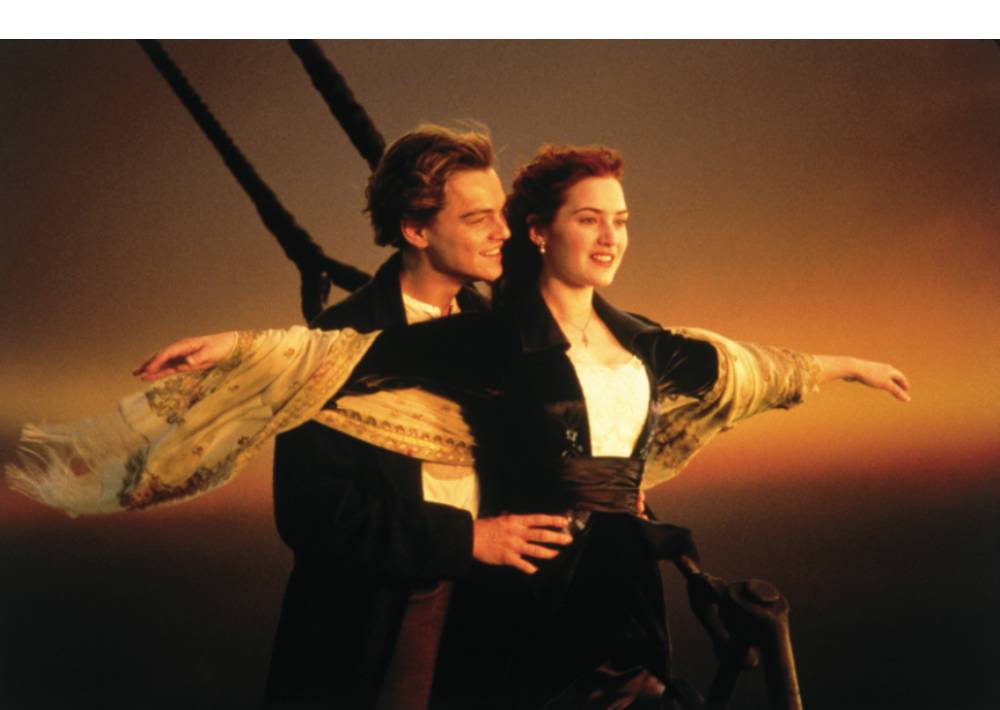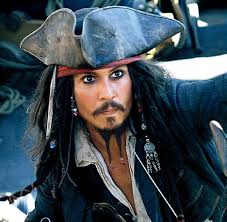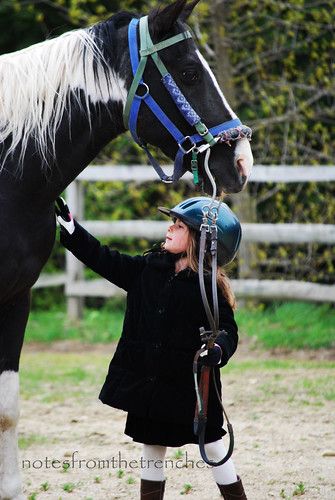Philosophical Ethics and Me
In examining philosophical ethics, it is important to keep the 3 types of ethics it concerns in mind. The first, metaethics, determines the nature of moral concepts and judgments through a logical or rational scope. The second, normative ethics, looks into how humans should act, or simply, what is right and wrong. And the final area, applied ethics, is the application and practice of these theories to major issues of concern, which in this case is animal humanities. I have recently had an opportunity to examine and practice my own philosophical ethics when I took a trip to the Houston Livestock and Rodeo this past spring break.
For the past 3 years, I have thoroughly enjoyed mindless entertainment at the Houston Rodeo by watching bull-riding, wrangling, concerts, playing amusement park games, and stuffing myself sick with fair food. It wasn’t until after I enrolled in Dr. Bump’s class and watching Earthlings that I stopped to think about all the different aspects that go into running such an event and suddenly became disgusted with myself.
As was our routine, the livestock exhibits were the first stop for the day, and they were also the first instance in which I began to see the inhumanity shown towards these animals. The sheer fact that this was called a livestock exhibit began to unsettle my stomach! The first exhibit I saw when I walked in was a demonstration of a cow being milked.


Not even enough room to move[1]
The idea of subjecting a living being to such a demonstration was completely illogical and helped shape my metaethics through logic. This poor cow was confined by large bars and given only enough room to stand, while her udders were hooked up to a machine that automatically milked her. Never in a million years would another human pressure a lactating mother to demonstrate how breast milk is pumped, nonetheless force her to do such a thing. When I thought about how this cow could barely move, I immediately connected this illogical idea with how obviously inhumane it was when the Nazis transported Jews to concentration camps and packed them so tightly that they too, could not even sit down. It was even more irrational that after the presentation was over, the milk was poured out without being used! Sickened, I walked only a few feet more to see a Borden stand with a live version of Elsie, the poster-cow of the company. She was forced to wear a decorative costume, and just like the cow being milked, could not move.
The sad part is that she had plenty of room to move around, but it seemed like she had no desire to do anything but lie there and wait for the garb to be removed.
Close by, our own school mascot, a longhorn, was being subjected to the same kind of treatment. As can be seen in the picture, the tips of his horns have a green tint.
The employee standing by pointed out that it was paint rubbing off from the rails in front of him, but said so in a manner that suggested it was because of the longhorn’s strength, not because of his lack of room. An old woman who overheard the employee exclaimed that this was “neat”, which pointed out that some people choose not to see what can logically be justified as what is ethically wrong (normative ethics). In a sense, I think people so often do this because they don’t consider animals a part of society. However, Utilitarian philosopher Jeremy Bentham suggested that “the capacity to feel pain, not the power of reason, entitled a being to moral consideration” and “that cruelty to animals was analogous to slavery.”[4] Author Greg Garrard agrees that “The Utilitarian ‘principle of equality’ states that everyone is entitled to equal moral considerations, irrespective of family, race, nation or species.”[5] In the scope of a utilitarian society, people that ignore injustices to animals like this longhorn are ignoring these animals the right to be considered a part of society. Derrida agrees that “No one can deny the suffering, fear or panic, the terror or fright that humans witness in certain animals” [6] and that this suffering qualifies those animals to be considered.
My girlfriend and I were scheduled to watch a famous country singer perform immediately after the rodeo and livestock events for the day, as is typical for all the concerts at the rodeo. However, at this point I no longer wanted to go because applied ethics. If I really believed that these animals deserved better treatment based on a utilitarian philosophy, then how could I knowingly support the rodeo by allowing myself to attend the concert. The more I walked around, the more I started to believe I had to apply these ethics in this situation. I saw more unethical exhibits such as birthing stations for pigs and chickens, sheep that were identified by the tags stapled in their ears, and petting zoos.
Painful, just like branding [7]
When I went to take a picture of the animals in cages at the petting zoo, I thought it was ironic that a group of kids were stuck in the exit gate and one was crying because she was scared. If only the supporters of the livestock exhibits could see how similar it was for a scared baby kangaroo to be trapped in a cage with a goat!
Animals in a cage [8]
Humans in a cage [9]
If humans caged up children like this and made other people pay to feed and pet them, it would be unquestionably unethical. But just because animals are a different species, then that makes it okay to turn the ethical cheek? As can be seen with the joey, some of these animals were taken far from their natural habitats and forced to live in a designated area with a designated lifestyle. Though it took several decades to realize this and compensate for it, the founders of our country did the same thing to the Native Americans. Maybe one day I’ll see animals gain special privileges as a way to repay them for their suffering.


Prices to take a picture with this steed [10]
Even if a pony wanted to, he couldn’t stop and move away to defecate due to the restraints. Instead, they would simply keep on working and do so on the run, right into the face of another worker. If these were humans, people wouldn't hesitate to file a report for working for less than minimum wage and health violations in the workplace. I once worked with a girl who filled a complaint that the mall bathrooms weren't private enough and that all stores should have at least one personal lavatory!
I couldn’t bring myself to watch the opening acts of the rodeo, but instead elected to walk around the outdoor exhibits. I soon realized I had made a terrible choice because the outdoor shows were exactly like a children’s version of the rodeo. Pig races where the emcee encouraged children and adults to cheer for a numbered pig, an eclectic group of farm animals subjected to do tricks, and even a type of sheep riding for children called “Mutton-Bustin." I couldn’t believe that just a year ago, I enjoyed these shows and never thought about how the animals felt.
Another logical question that the livestock exhibits pointed out dealt with economics. If the attractions that gross so much monetary profit are so heavily focused on these animals, then why are the animals not treated better? Because it is not fair to assume they are treated poorly when not on display (which I doubt), by just looking at the conditions they face while they are on display is absolutely appalling.


Prices to take a picture with this steed [10]
Looking at this example alone, if a group of 5 wants to take and buy a picture then it would be $14, $12 for the 4x6 and $2 for an additional person. If 3 more groups of 5 want the same deal and it only takes a total of 30 minutes, then that would mean this longhorn would make $70 and $140 in an hour. Imagine how much they could make in a day and how much of that actually goes to the care for the longhorn. Investing more money to create larger work spaces would be a start. If we imagined that these animals are in fact doing a job, they should be paid for going to work. Instead of investing the money that they make in better work and living conditions, they are given just enough food and shelter to live. This picture of a live merry-go-round shows how close the ponies must walk to each other.
Live merry-go-round[11]
Even if a pony wanted to, he couldn’t stop and move away to defecate due to the restraints. Instead, they would simply keep on working and do so on the run, right into the face of another worker. If these were humans, people wouldn't hesitate to file a report for working for less than minimum wage and health violations in the workplace. I once worked with a girl who filled a complaint that the mall bathrooms weren't private enough and that all stores should have at least one personal lavatory!
I couldn’t bring myself to watch the opening acts of the rodeo, but instead elected to walk around the outdoor exhibits. I soon realized I had made a terrible choice because the outdoor shows were exactly like a children’s version of the rodeo. Pig races where the emcee encouraged children and adults to cheer for a numbered pig, an eclectic group of farm animals subjected to do tricks, and even a type of sheep riding for children called “Mutton-Bustin." I couldn’t believe that just a year ago, I enjoyed these shows and never thought about how the animals felt.
Pig races [12]
Tricks show [13]
Mutton Bustin[14]
The only thing I had left that could possibly be enjoying from the previous year was food, and that would quickly change. I knew there was no way I could enjoy the food after seeing this grill.

Murderer[15]
Now not only are animals unnecessarily put to work, but they are also mass murdered for sausage-on-a-stick and turkey legs. Soon after seeing this, I left the fair grounds disgusted and began to think about how to work towards making things ethically right. In order to apply ethics properly, I think the first step is awareness. As in my own case, once I was educated and my eyes were opened, it wasn’t hard to experience how much suffering went into the rodeo. Author Goleman says that “empathy builds on self-awareness; the more open we are to our own emotions, the more skilled we will be in reading feelings” [16]. As we read the feelings of suffering animals like one ones depicted here, it is easier to understand that their treatment is unethical and that something should be done about it.
As for action against the rodeo, I think it would be easier to view the rodeo apart from the monetary profit that comes from it. Nearby gas stations, restaurants, hotels, and parking lots get some of their best business during rodeo season, and if there could be another humane event that would bring the same economic boom to the city, then it would be much easier to just take it retire it completely. With the implementation of stricter animal rights laws, these logical justifications for the rodeo’s dissolution would certainly expedite the process. A John Mayer song entitled "Waiting on the World to Change" has the same message: that there are unethical problems that we face in the world, and unless we do become active about it, we will just have to wait for the world to change which is highly unlikely.
Without quotes and captions: 1,617
With quotes and captions: 1,733
1. Houston Livestock and Rodeo, personal picture.
2. ibid.
3. ibid.
4. Greg Garrard, Egocriticism, (London: Fourth Estate Limited, 1993), 136.
5. ibid, 137.
6. Jacques Derrida, “The Animal That Therefore I am (Following)”, (Chicago: Critical Inquiry, 2002), 11.
7. Houston Livestock and Rodeo, personal picture.
8. ibid.
9. ibid.
10. ibid.
11. ibid.
12. Houston Livestock and Rodeo, personal video, http://www.youtube.com/watch?v=SgnGlTy_xFQ&feature=channel_page.
13. Houston Livestock and Rodeo, personal picture.
14. Houston Livestock and Rodeo, personal video, http://www.youtube.com/watch?v=lFShUdhRseI&feature=channel_page.
15. Houston Livestock and Rodeo, personal picture.
16. D. Goleman, The Roots of Empathy, (Bantam Books, 1996), 96.
As for action against the rodeo, I think it would be easier to view the rodeo apart from the monetary profit that comes from it. Nearby gas stations, restaurants, hotels, and parking lots get some of their best business during rodeo season, and if there could be another humane event that would bring the same economic boom to the city, then it would be much easier to just take it retire it completely. With the implementation of stricter animal rights laws, these logical justifications for the rodeo’s dissolution would certainly expedite the process. A John Mayer song entitled "Waiting on the World to Change" has the same message: that there are unethical problems that we face in the world, and unless we do become active about it, we will just have to wait for the world to change which is highly unlikely.
Without quotes and captions: 1,617
With quotes and captions: 1,733
1. Houston Livestock and Rodeo, personal picture.
2. ibid.
3. ibid.
4. Greg Garrard, Egocriticism, (London: Fourth Estate Limited, 1993), 136.
5. ibid, 137.
6. Jacques Derrida, “The Animal That Therefore I am (Following)”, (Chicago: Critical Inquiry, 2002), 11.
7. Houston Livestock and Rodeo, personal picture.
8. ibid.
9. ibid.
10. ibid.
11. ibid.
12. Houston Livestock and Rodeo, personal video, http://www.youtube.com/watch?v=SgnGlTy_xFQ&feature=channel_page.
13. Houston Livestock and Rodeo, personal picture.
14. Houston Livestock and Rodeo, personal video, http://www.youtube.com/watch?v=lFShUdhRseI&feature=channel_page.
15. Houston Livestock and Rodeo, personal picture.
16. D. Goleman, The Roots of Empathy, (Bantam Books, 1996), 96.


































